The idea that humans obligatorily need cooked foods is a hypothesis often put in the room in science and everyday life. Where does this assumption come from? After all, every single animal eats a raw diet in nature! This oddity exists because we have forgotten our frugivorous nature and true natural diet.
For quick readers:
Do we need cooked food in our diet, or can we live on a raw diet? Yes, we can thrive on a raw diet if we adopt the biologically appropriate diet of our species: The raw human diet is tropical and frugivorous. To avoid deficiencies, it requires access to abundant high-quality tropical fruits and foods, like durian, mango, papaya, bananas, jackfruit, coconuts, and other tropical nuts and foods. We have to be aware that wild fruits and foods are nutritionally superior to cultivated ones. If you live outside our natural habitat, the tropics, you need to be aware of the possible pitfalls and drawbacks of a raw diet in cold climates and might want to look into survival foods and food types. Nonetheless, our natural, species-specific diet is raw!
Let’s explore:
Where “raw” goes wrong!
The reason why a raw diet is often dismissed as deficient is that we have the common idea of a “raw diet” (see an example here), which ignores that the biology of humans is that of a tropical frugivore. Most raw diets are not high in tropical fruits and, therefore, cannot meet our nutritional needs. We also have to be aware that wild fruits and foods are nutritionally superior to cultivated ones. To learn what our diet looks like, we might learn from our closest relatives, the chimpanzees! Humans are categorized as omnivores, but most of us are unaware that we are frugivorous omnivores – like chimpanzees!
We are tropical frugivores that need tropical ripe fruits as the main food source because that is how we have evolved and adapted. We have evolved in tropical forests. And, not considering our evolutionary past and dietary ecology – our natural food sources – is where “raw” goes wrong!
Most raw diets cause deficiencies because of a misconception about our dietary biology: a raw diet has to be done according to our ecology. Biologically, we are a tropical, frugivorous species. But most people do not know we are frugivores! In fact, most people have never even heard of frugivory as a biological dietary category, as opposed to carnivory or omnivory! This seems odd in light that humans have numerous biological traits of frugivores and are highly similar to apes, which are all highly frugivorous!
Unfortunately, most raw diets fail to focus on high-quality tropical fruits and other factors in a tropical habitat: the typically portrayed raw diet consisting of temperate fruits and plants like tubers, greens, and acidic berries, which is nothing like the (raw) diet of a tropical frugivorous ape, with loads of nutritious sweet tropical fruits! Tropical fruits contain more energetic nutrition, protein, healthy fats and omega-3s, and sulfur, and are a rich source of micronutrients and minerals.
Why do we believe that we need cooked foods?
Humans have adopted cooked foods for a good reason: to survive in places lacking tropical fruits. In cold or dry environments, there are simply not enough natural (raw) food sources to survive. The temperate flora does not produce the fruits that frugivores need. Adopting a raw diet based on temperate foods is where raw goes wrong, and is the reason why we believe that we need cooked foods!
The common belief that humans need cooked foods – and a raw diet cannot be healthy – is because raw diet studies are based on non-tropical, non-frugivorous raw food diets!
Let’s look at the famous “Giessen Raw Food Study”:
The “Giessen Raw Food Study” is confusing the idea of raw diets
Why are there people arguing that raw cannot sustain the human body, while others report that they have been living on a raw diet for decades? The hypothesis that humans are biologically dependent on cooked foods is based on one study, the Giessen Raw Food Study.
This study is a survey from 1999, which found that around 30 % of women have lost their period or partially lost their period on a long-term raw diet.
In fact, many articles on this subject (like this one) lean on the Giessen Raw Food Study! Those articles generally suggest that cooked foods are the key to human development and that raw foods can no longer sustain us. The bias here is, that the raw foods mentioned in the article are starchy potatoes and other tubers, not tropical fruits.
Some foods that are often used in “conventional” raw diets are mistakenly believed to be suitable foods for humans, while they actually contain many anti-nutrients and are not biologically appropriate food sources for our species! Read more here on food groups.
Not understanding the concept of biologically appropriate foods for our species is the key error in raw diets. Tropical fruits are the primary food source (around 70% for chimpanzees) of frugivorous primates.
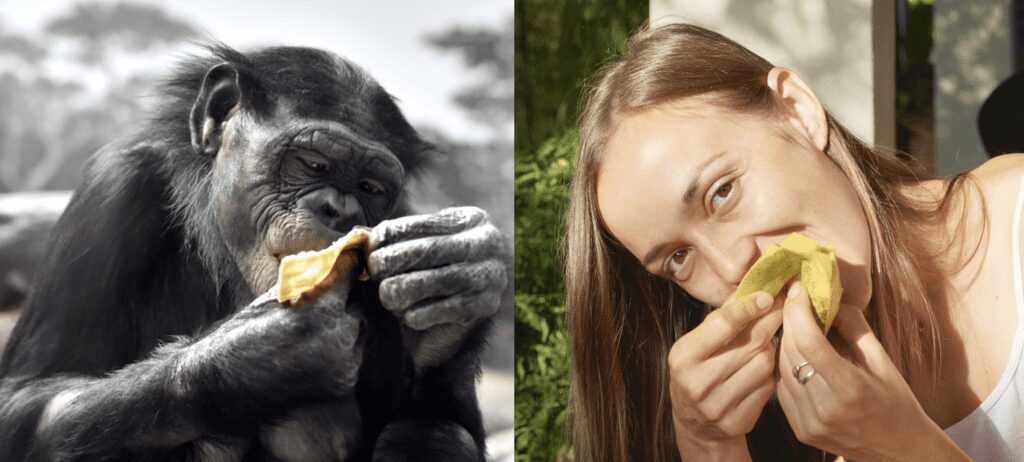
Sadly, most articles exploring human dietary evolution rarely mention fruits or the frugivorous characteristics of humans and other primates. Moreover, the same unknowingness is present in many people who adopt a raw diet. A raw diet only works for humans if it is a tropical frugivorous diet that includes an abundance of high-quality ripe tropical fruits, nuts, and greens (not fruit only!). If we cannot access these types of foods, we need to consider the survival foods of humans – cooked foods. Additionally, we need to consider certain supplementation, especially when we do not live in the tropics. We starve on raw foods like temperate fruits, greens, tubers, and nuts only. One extreme case is fruit diets, which are based on only temperate fruits. Those types of dietary patterns can lead to severe deficiencies (see one example here).
The highly influential Giessen Raw Food Study is, thus, sadly, biasing the idea we have about raw diets and confusing our picture of the natural human diet, which is indeed raw, tropical, and fruit-based. A raw high-fruit frugivore diet (similar to a chimpanzee diet) with abundant access to ripe tropical wild fruits is very different from a usual, non-frugivorous, raw-vegan diet of someone living in colder climates! Those diets often lack a high portion of ripe tropical fruits and their nutrients! The common opinion that humans cannot be sustained by a raw diet of this type, is actually justified! However, humans certainly can thrive on a raw tropical species-appropriate diet.

There are no studies on a frugivorous raw diet!
The hypothetical reason for humans’ inability to survive long-term on a raw diet has not been tested thoroughly yet! Raw diets vary significantly, and there is a lack of awareness of the tropical frugivorous nature and diet of humans. The long-standing debate around omnivore vs. herbivore humans could likely be solved in the blink of an eye, with frugivory in the picture!
It certainly is time to start studying the long-term effects of a frugivorous raw diet on health!
Can we survive and thrive on a raw diet?
Yes, we can survive and thrive on a raw diet under the right conditions: eating raw only works long-term with frugivory in the picture! We must consider that our biology is that of a tropical frugivorous primate.
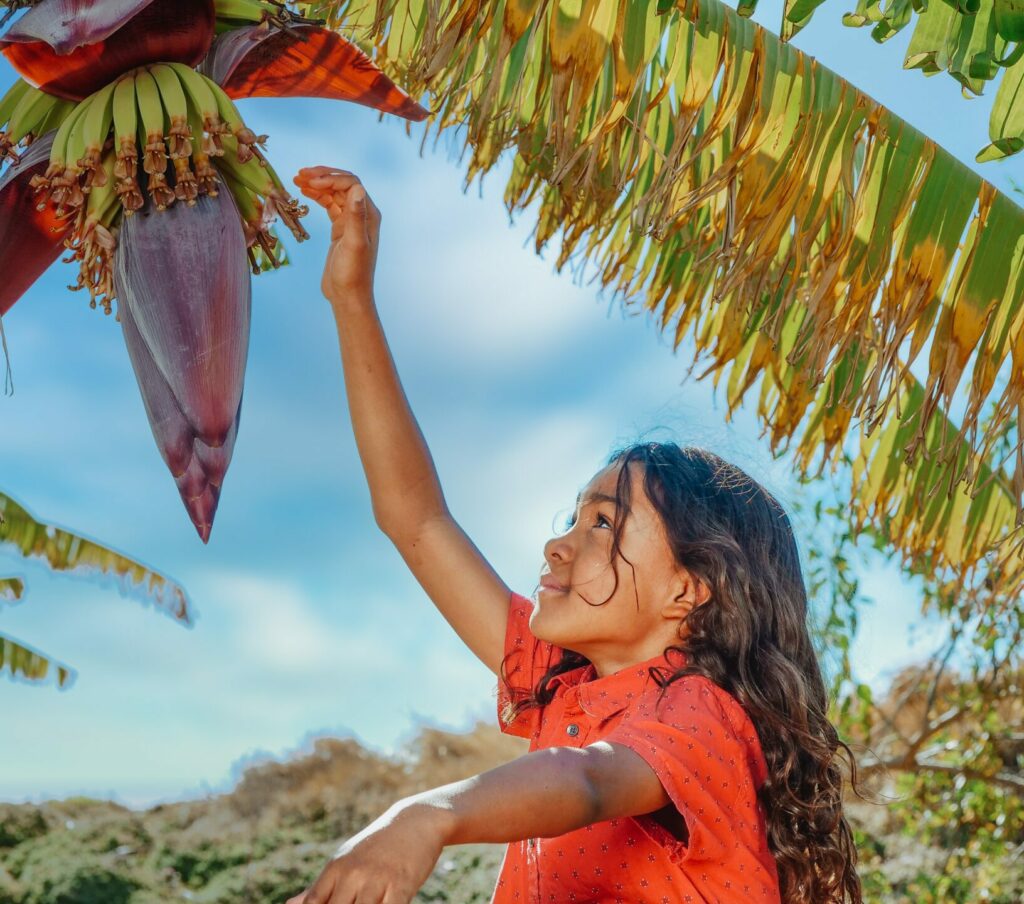
Humans do not have physiological or anatomical adaptations that indicate that we need cooked foods. Research on cooked food diets and adaptations shows that humans have markers for a lower immune response to cooked foods (unlike raw foods, cooked foods induce immune responses) and a higher tolerance to fire smoke toxins. Thus, we tolerate cooked foods, but we are not hooked to them. We tolerate cooked foods, but they are not optimal. However, heating, cooking, and other types of food processing enable our species to survive in poor habitats that do not naturally sustain us with our species’ foods. Thus, cooked foods are survival foods.
Raw needs to be done right!
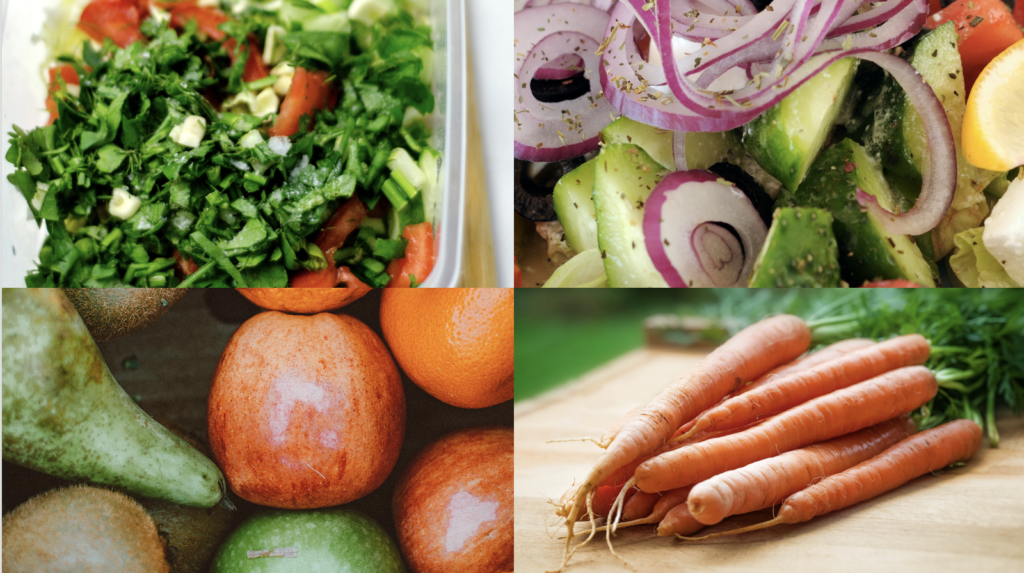
We cannot expect to obtain enough calories and the nutrition primates (humans) need from raw foods like greens, vegetables, tubers, nuts, and temperate, acidic fruits and vegetable fruits.
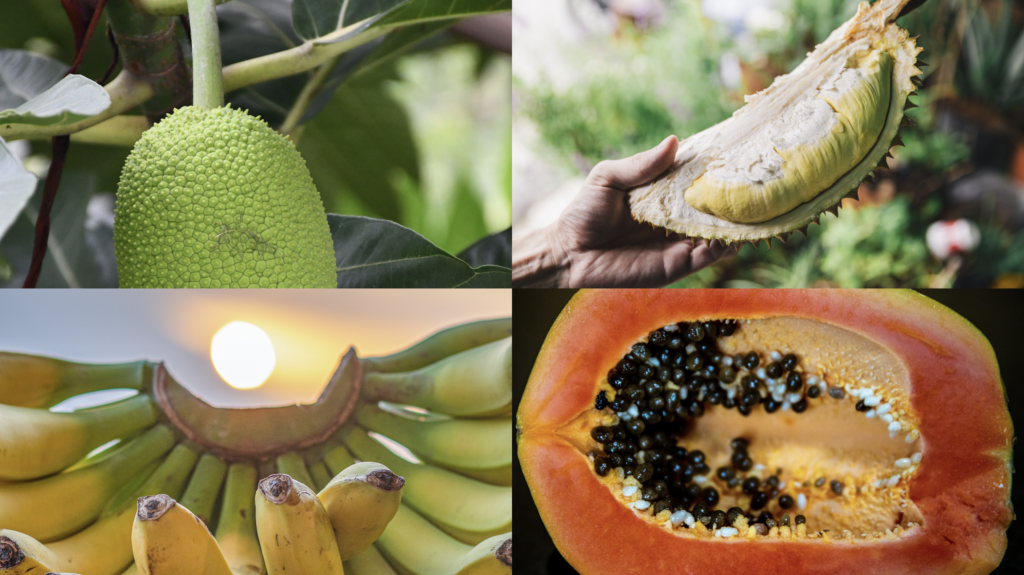
But the picture of raw food nutrition changes with a diet comprised of mainly fleshy, calorie-dense tropical fruits and nuts, greens, and maybe some animal-based foods in a friendly climate – inspired by the natural diet of chimpanzees in the wild!
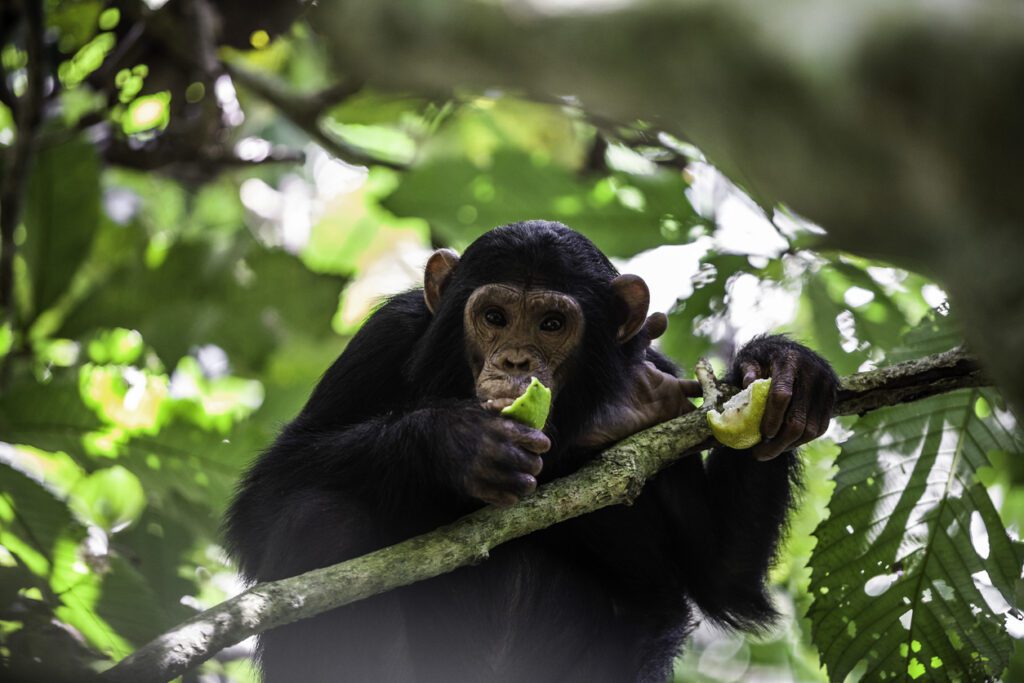
To sum it up, we probably should learn more from chimpanzees and evolution, to know what a healthy raw diet looks like then by cultural confusion.
Conclusion
A raw diet has to be based on ripe tropical fruits to be sustainable and species-specific because we are a tropical frugivorous species! If we cannot get sufficient high-quality tropical fruits, a raw diet might not be sustainable in the long run!
Unfortunately, studies of raw frugivorous and biologically appropriate frugivorous diets do not exist! Fortunately, we can be inspired by the wealth accounts reporting positive health outcomes of a growing number of people that have adopted a high-fruit diet!
Read more about a frugivorous diet here.
Last update:
References
- Guy, A. (2011) Apes like cooked food, and what that means for human evolution. Next Nature Network. Available at: https://nextnature.net/story/2011/apes-like-cooked-food-and-what-that-means-for-human-evolution (Accessed: April 7, 2023).
- Koebnick, C. et al. (1999) “Consequences of a long-term raw food diet on body weight and menstruation: Results of a questionnaire survey,” Annals of Nutrition and Metabolism, 43(2), pp. 69–79. Available at: https://doi.org/10.1159/000012770.
- Rosati, A. (2018) Food for thought: Was cooking a pivotal step in human evolution?, Scientific American. Scientific American. Available at: https://www.scientificamerican.com/article/food-for-thought-was-cooking-a-pivotal-step-in-human-evolution/ (Accessed: April 7, 2023).


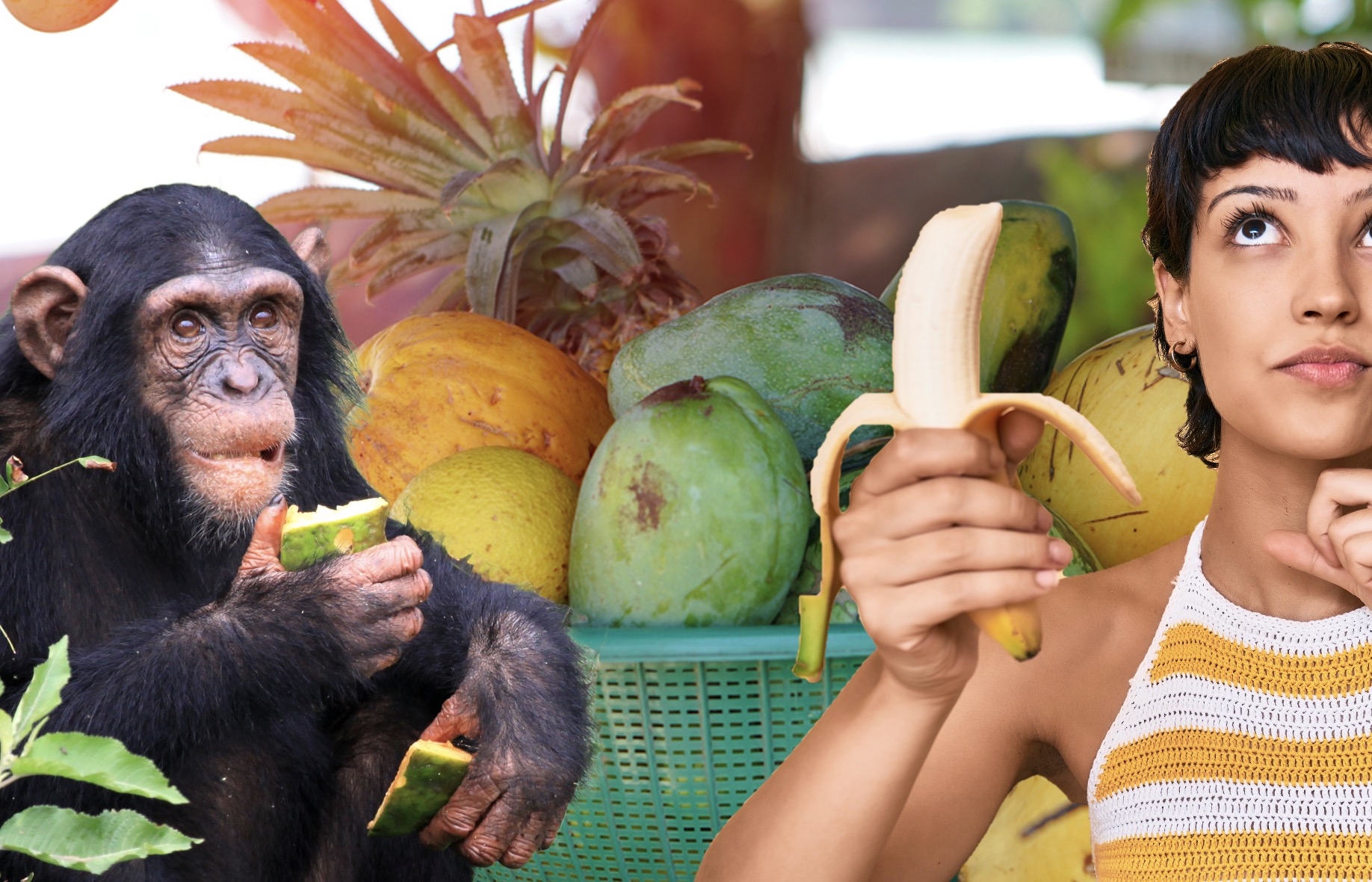
Add Comment